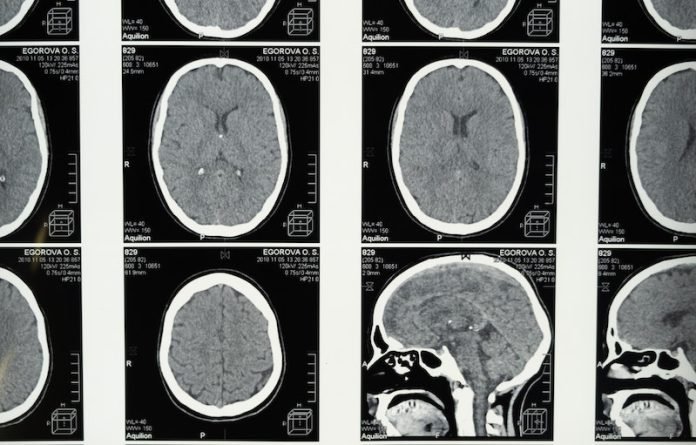
Scientists have discovered a new way to treat Alzheimer’s disease, which is a condition that affects the brain and causes problems with memory and thinking.
The research team from the University of California, San Francisco (UCSF) has found that a certain type of immune cell in the brain, called microglia, plays a critical role in the development of Alzheimer’s disease.
By targeting these cells, the researchers were able to slow down the progression of the disease in mice.
In a study published in the journal Neuron, the scientists showed that microglia become overactive in response to beta-amyloid, a protein that forms clumps in the brains of Alzheimer’s patients.
When microglia are overactive, they can cause inflammation and damage to brain cells.
The researchers found that by blocking a specific protein on the surface of microglia, called TREM2, they were able to reduce inflammation and prevent damage to brain cells.
Microglia are like the garbage collectors of the brain.
They normally remove waste products and protect the brain from infection and injury. But in Alzheimer’s disease, they become dysfunctional and actually contribute to the disease process.
The researchers used a drug that blocks TREM2 in mice with Alzheimer’s disease and found that it reduced the amount of beta-amyloid in their brains and improved their cognitive function.
The drug also reduced inflammation and prevented damage to brain cells.
This is a promising new approach to treating Alzheimer’s disease. By targeting microglia, researchers may be able to slow down the progression of the disease and improve the quality of life for patients.
Alzheimer’s disease is the most common form of dementia, which is a group of brain disorders that affect memory, thinking and behavior.
It is estimated that more than 6 million Americans are living with Alzheimer’s disease, and this number is expected to increase as the population ages.
There is currently no cure for Alzheimer’s disease, and the available treatments only provide temporary relief of symptoms.
The discovery of a new way to treat the disease offers hope for millions of people affected by this devastating condition.
While the study is still in the early stages, the researchers are optimistic about the potential of targeting microglia to treat Alzheimer’s disease.
They plan to conduct further studies on animals and humans to determine if the approach is safe and effective.
How to prevent Alzheimer’s disease
Alzheimer’s disease is a progressive neurological disorder that affects memory and thinking abilities. While there is no known cure for Alzheimer’s disease, there are steps that people can take to help reduce their risk of developing the disease.
Exercise regularly: Exercise has been linked to a lower risk of developing Alzheimer’s disease. Regular exercise can help to improve blood flow and oxygen to the brain, which can help to maintain brain health.
Eat a healthy diet: A healthy diet that is rich in fruits, vegetables, whole grains, lean proteins, and healthy fats can help to reduce the risk of developing Alzheimer’s disease. Avoiding processed foods, sugar, and unhealthy fats is also important.
Stay mentally active: Engaging in mentally stimulating activities, such as reading, doing puzzles, or playing games, can help to maintain cognitive function and reduce the risk of developing Alzheimer’s disease.
Get enough sleep: Chronic sleep deprivation has been linked to an increased risk of developing Alzheimer’s disease. Aim for at least 7-8 hours of sleep each night to help maintain brain health.
Manage chronic health conditions: Chronic health conditions such as high blood pressure, diabetes, and obesity have been linked to an increased risk of developing Alzheimer’s disease.
Managing these conditions through lifestyle changes and medication can help to reduce the risk.
Stay socially connected: Social isolation has been linked to an increased risk of developing Alzheimer’s disease.
Maintaining social connections through activities such as volunteering, joining clubs, or spending time with friends and family can help to reduce the risk.
Protect your head: Traumatic brain injuries have been linked to an increased risk of developing Alzheimer’s disease.
Protect your head by wearing a helmet when participating in sports or riding a bike, and taking steps to prevent falls.
While these steps may not guarantee that someone will never develop Alzheimer’s disease, they can help to reduce the risk and maintain brain health.
It is also important to speak with a healthcare professional about any concerns regarding Alzheimer’s disease or cognitive function.
If you care about brain health, please read studies about vitamin D deficiency linked to Alzheimer’s and vascular dementia, and higher magnesium intake could help benefit brain health.
For more information about brain health, please see recent studies about antioxidants that could help reduce dementia risk, and coconut oil could help improve cognitive function in Alzheimer’s.
The study was conducted by Yadong Huang et al.
Copyright © 2023 Knowridge Science Report. All rights reserved.



